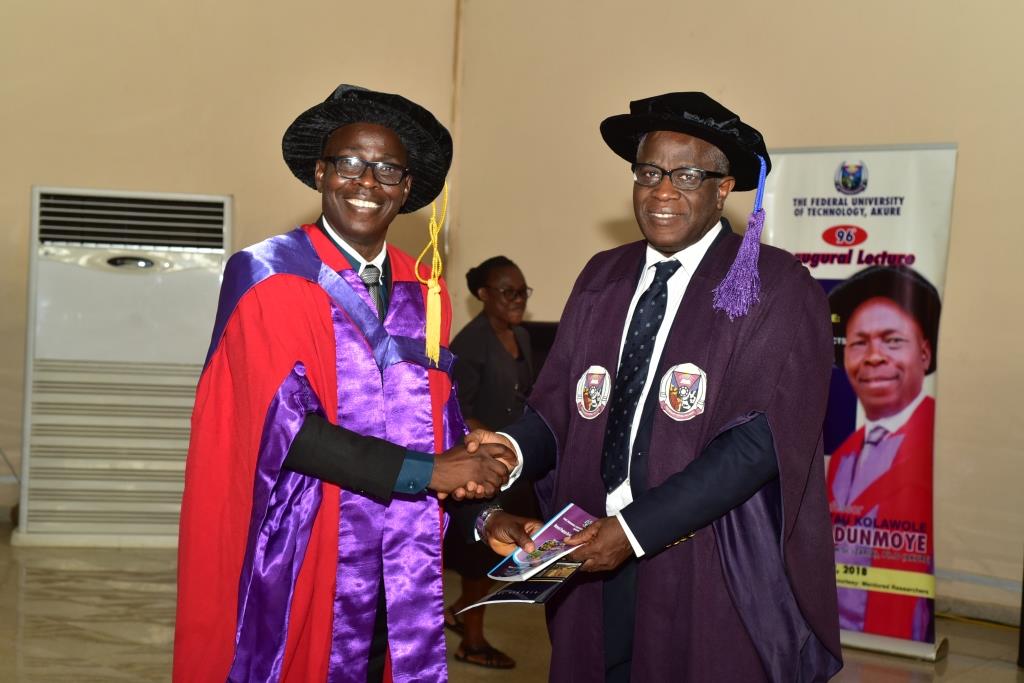Muftau Oladunmoye, a professor of Pharmaceutical Microbiology with the Federal University of Technology Akure (FUTA) has said that natural products derived from plant and animal sources have the potential to prevent and treat challenging health issues such as cancer, diabetes, liver cirrhosis, heart related diseases and a number of ailments threatening the well-being of people globally.
Speaking at the 96th Inaugural lecture of FUTA on the topic: Natural Products Derived Antimicrobials: The Myth and Reality, Oladunmoye cited various examples of scientifically proven efficacy of extracts from herbs and plants in the treatment of ailments.
Explaining that extracts from mistletoe growing on cocoa and Kolanut trees have proven anti-cancer property, he however advocated for “thorough research into how to improve the quality and safety of natural products for therapeutic purposes and for intellectual as well as material investment in its development to ensure its survival.”
The lecturer said while there were some potential hazards associated with herbal medication such as allergies and cellular respiration inhibitors, “the greatest challenges facing the use of these products is the prevalence of myths associated with its use.”
He stressed the advantages of natural products, which he posited, outweigh the disadvantages “as traditional remedies are mostly compounded from natural products and there is the likelihood of them being accepted by the body than substances produced in the laboratory.”
According to him, “In recent times, especially in the sub region, preference of traditional health products over orthodox medicine has been on the rise due to low incomes and weak financial strength of most people in rural areas and high cost of imported chemically synthesized drugs some of which have undesirable side effects.”
While urging for concerted effort towards evaluating the potentials and medicinal value of natural products for prophylactic and therapeutic applications to health, he said “the maintenance of good health should be holistic embracing orthodox and traditional methods, and the lines of convergence between them must be promoted not demarcated by health authorities as part of measures to guarantee improve physical, mental and spiritual well-being of the populace.”
The Professor defined natural products as chemical compounds or substances produced by living organisms or found in nature that have pharmacological or biological activities.
“Nature has been a source of medicinal agents for thousands of years and an impressive number of drugs have been isolated from natural sources, many based on their uses in traditional medicine,” Oladunmoye said while recommending that “modern scientific approaches in extraction and purification should be explored by pharmaceutical industry while considering traditional medicine as a source of identification of bioactive agent that can be used in the preparation of synthetic medicine.”
He stressed the need to have standardized, effective and ethical, quality control practices on conserving and propagating natural products in whatever way they could be used and the development of globally applicable guidelines to promote the safety and quality of natural products through formulation of codes.
Oladunmoye said local health authorities should, where applicable, “seek the collaboration of traditional practitioners in promoting programs such environmental sanitation, personal hygiene, family planning and immunization. While traditional health practitioners should be trained to improve their skill and to ensure their cooperation in making use of referral system in dealing with high risk patients.”
The Don urged government and stakeholders in the health sector to establish formalized national, state and local government boards on traditional medicine in order to coordinate and regulate their activities and practices.
He also called on universities to establish Centers for Natural Products Research in order to standardize indigenous medicine and pharmacopeia through teaching and scientific research.
Chairman of the occasion and Vice Chancellor of FUTA, Prof. Joseph Fuwape commended the lecturer and described the lecture as not only timely but also enlightening given the prevalent health challenges facing people globally.
“Oladunmoye is a scholar par excellence who has contributed immensely to the body of knowledge in his area of specialization and the development of the institution,” the VC said.
The lecture was attended by royal fathers, stakeholders in the academic sector, staff and students of the university.


